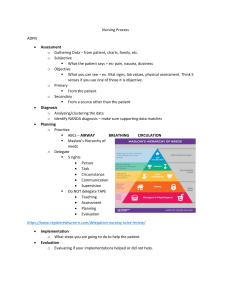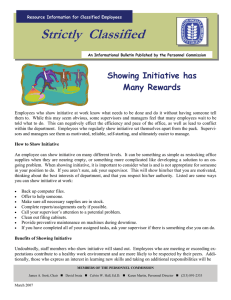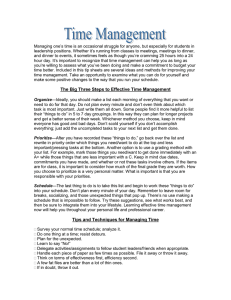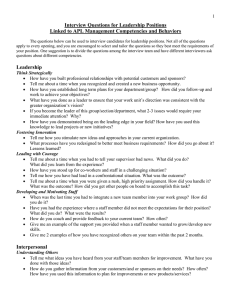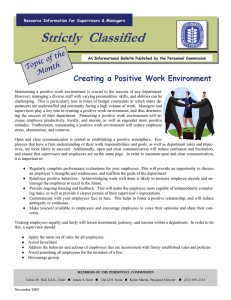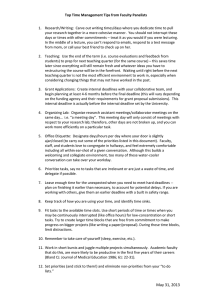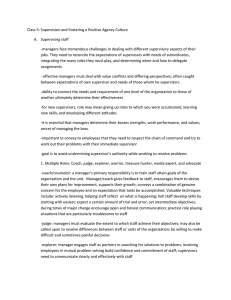Strictly Classified Making Your Time Count
advertisement
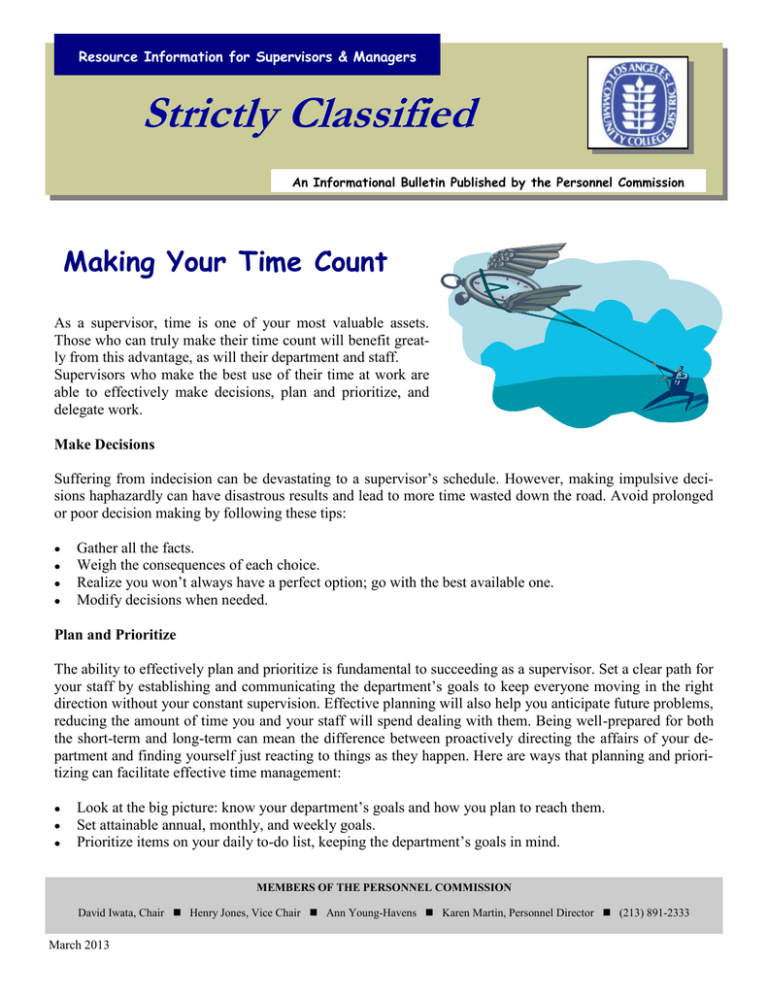
Resource Information for Supervisors & Managers Strictly Classified An Informational Bulletin Published by the Personnel Commission Making Your Time Count As a supervisor, time is one of your most valuable assets. Those who can truly make their time count will benefit greatly from this advantage, as will their department and staff. Supervisors who make the best use of their time at work are able to effectively make decisions, plan and prioritize, and delegate work. Make Decisions Suffering from indecision can be devastating to a supervisor’s schedule. However, making impulsive decisions haphazardly can have disastrous results and lead to more time wasted down the road. Avoid prolonged or poor decision making by following these tips: Gather all the facts. Weigh the consequences of each choice. Realize you won’t always have a perfect option; go with the best available one. Modify decisions when needed. Plan and Prioritize The ability to effectively plan and prioritize is fundamental to succeeding as a supervisor. Set a clear path for your staff by establishing and communicating the department’s goals to keep everyone moving in the right direction without your constant supervision. Effective planning will also help you anticipate future problems, reducing the amount of time you and your staff will spend dealing with them. Being well-prepared for both the short-term and long-term can mean the difference between proactively directing the affairs of your department and finding yourself just reacting to things as they happen. Here are ways that planning and prioritizing can facilitate effective time management: Look at the big picture: know your department’s goals and how you plan to reach them. Set attainable annual, monthly, and weekly goals. Prioritize items on your daily to-do list, keeping the department’s goals in mind. MEMBERS OF THE PERSONNEL COMMISSION David Iwata, Chair Henry Jones, Vice Chair Ann Young-Havens Karen Martin, Personnel Director (213) 891-2333 March 2013 Include time in your schedule for thinking, planning, and the unexpected. Take advantage of times when you have the most energy or tend to experience the fewest interruptions Remember to remain flexible; make adjustments to your priorities as conditions change. To reduce interruptions and strengthen communication, schedule regular meetings with staff; encourage them to be prepared to discuss questions or obstacles they have. Remain flexible, but try not to let circumstances control how your time is spent. Delegate Work A common mistake for supervisors to make is to over commit themselves. Taking on more than you can handle may prevent you from getting a good amount of anything done because you’re stretched so thin. One way to get more done without compromising quality is to effectively and appropriately delegate tasks to your staff. Follow these tips to delegate work successfully: Select appropriate tasks for delegation; you are still ultimately responsible for the results. Determine the right staff member for the job; match tasks to employees’ skills and strengths. Clearly define and communicate the task you are delegating. Monitor the progress of delegated work and provide support when needed. Follow up when work is completed and show your appreciation when an employee performs well. Managing your time wisely takes a lot of practice. It can help to recognize that while the goals of your department are important, management itself is a journey not a destination. Accept that you will never truly finish your to-do list; it’s simply a tool to help you stay on track. Know that emergencies will occur and plans will need to be changed. Your time management skills will grow and develop as you gain experience in your role as a supervisor. It’s a process of continuous improvement, and not one you should expect to have mastered right away.
